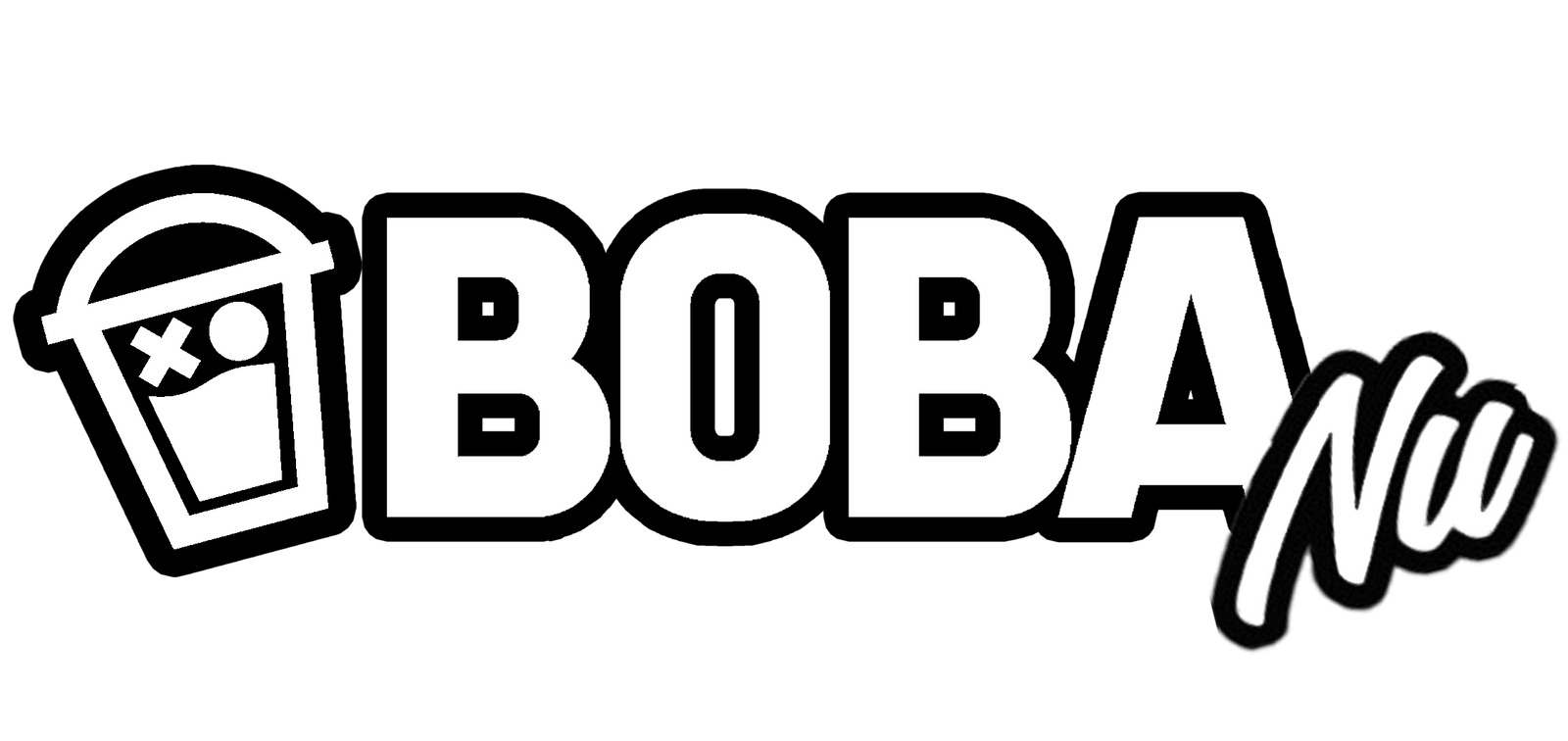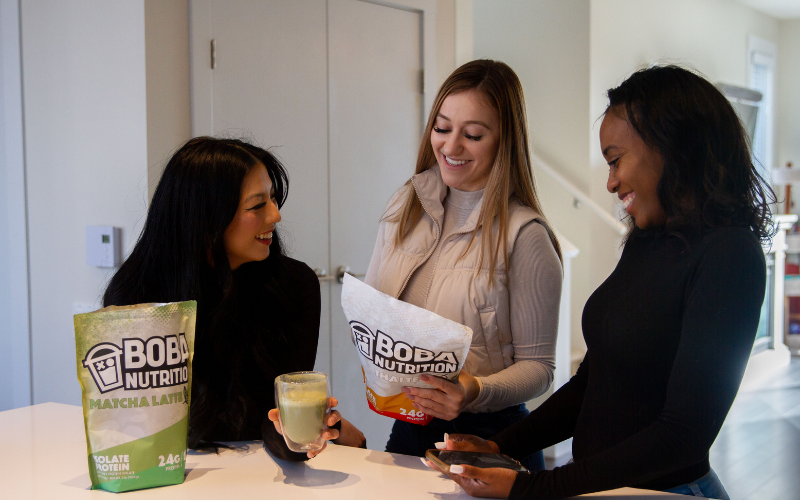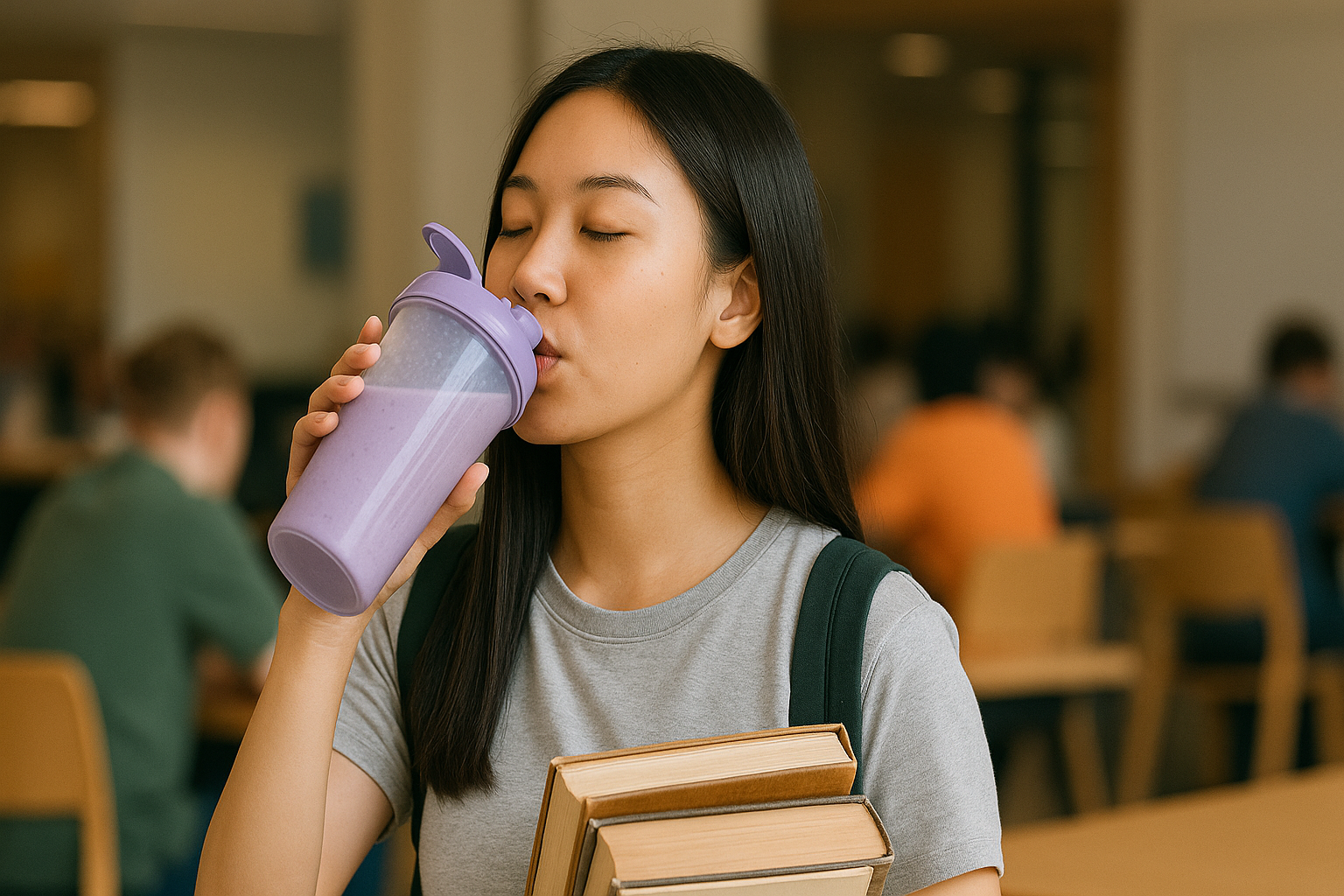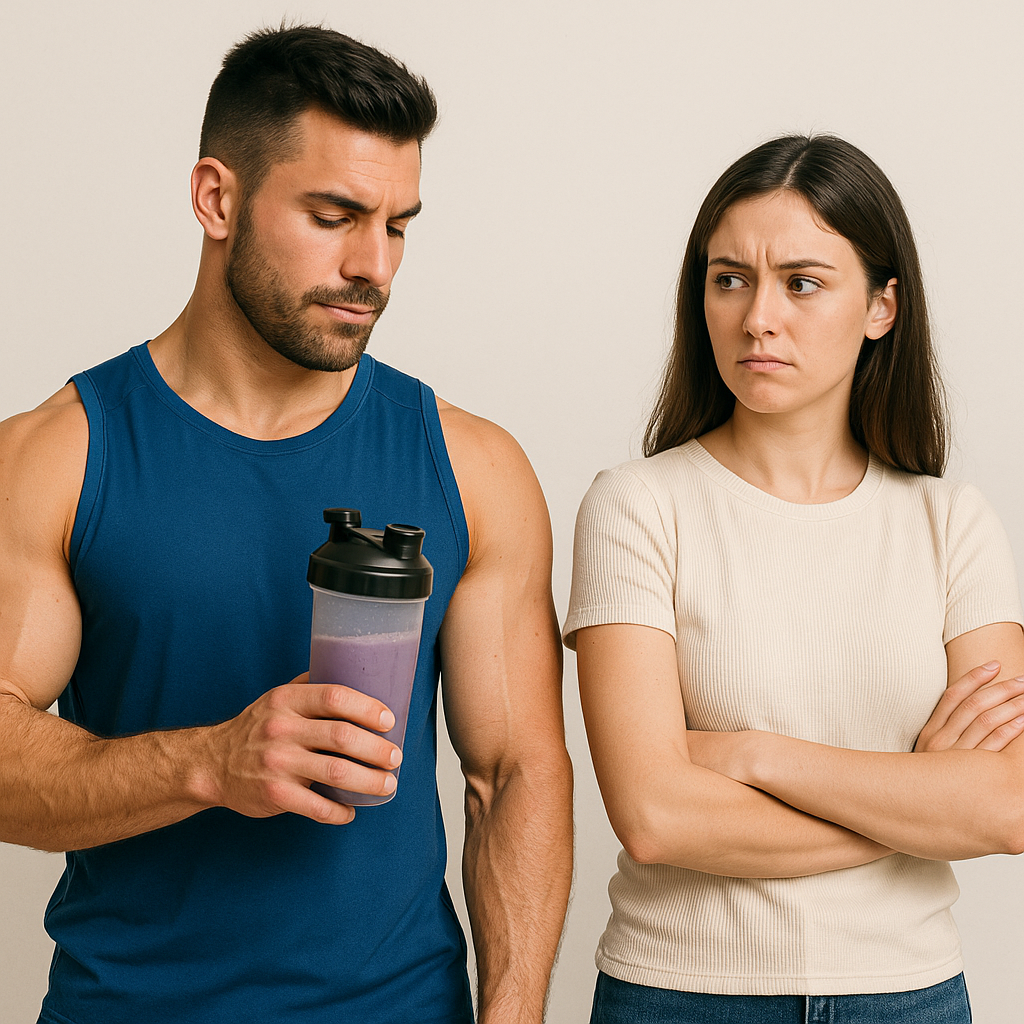Boba Nutrition Ingredients
Boba Nutrition, also known as bubble tea protein, has gained immense popularity for its unique combination of tea, milk, boba flavors and protein. As the Boba trend continues to thrive, more people are becoming curious about this Boba Nutrition beverage's nutritional aspects and ingredients. In this article, we will delve into the world of Boba nutrition, explore its key ingredients, discuss health effects, and provide tips for making healthier choices.
Understanding Boba Nutrition and Regular Boba Tea
When considering Boba Nutrition as your bubble tea protein powder, it's important to recognize the various components included in the nutritional profile of boba protein. A typical Boba drink is loaded with sugar, calories, fats and unnstural ingredients.
Boba drinks can vary, but in terms of sugar, they tend to have about 40g per drink. As for the calorie content, depending on the size, ingredients, and customization options, the Boba drink can range from 300 to 500 calories. Most of these calories come from carbohydrates in the form of sugars! It's essential to be mindful of the calorie content and portion sizes when enjoying Boba as part of a balanced diet.
Whereas Boba Nutrition has a protein base, sugar-free sweeteners, boba flavorings. Making Boba Nutrition a much healthier nutritional value.
Boba Nutrition Ingredients
To better understand Boba Nutrition, let's closely examine its key ingredients.
Our main ingredient is the protein base which is Whey Isolate and Pea protein for our vegan alternatives.
Whey isolate protein is a the purest form of protein derived from milk. With high protein concentration and is low fat and lactose. Whey isolate is known for its high amino acid profile, rapid absorption, and major muscle-building benefits. It's commonly used as a post-workout supplement and can be added to various recipes. However, those with lactose intolerance or milk allergies should be cautious.
Pea protein is a plant-based protein made from yellow peas. It's rich in amino acids, especially BCAAs, which support muscle recovery and growth. Pea protein is easily digested, allergen-friendly, and has benefits other appetite plus sides like appetite regulation and weight management. Be sure to consult a professional if you have specific allergies or dietary concerns.
We then have our sugar free sweetener Monk a Fruit, Monk fruit, also known as Luo Han Guo or Buddha fruit, is a small round fruit native to Southeast Asia. It derives its name from the Buddhist monks who first cultivated it centuries ago. Monk fruit is valued for its intense sweetness while containing virtually no calories or carbohydrates, making it a popular natural sweetener alternative. The sweetness of monk fruit comes from natural compounds called mogrosides, particularly mogroside V. These compounds provide a sweet taste without raising blood sugar levels, making monk fruit an attractive option for people managing their sugar intake or those with diabetes. Monk fruit sweeteners do not significantly impact blood sugar or insulin levels!
Monk fruit is also known for not having any bitter/gross aftertaste like other sweetener substitutes like sucralose and stevia extract, Monk fruit sweeteners are generally considered safe for consumption, including by individuals with diabetes. However, it's advisable to consult with a healthcare professional, particularly if you have specific dietary concerns or medical conditions. For more information on Monk Fruit check out our article here.
Next for the milky texture and flavor we use all-natural coconut cream,
Coconut creamerin protein powder refers to the coconut-based ingredients that bring the creaminess and flavor of the protein powder. It is a popular choice for individuals who enjoy the taste of coconut and desire a smoother texture in their protein shakes or smoothies.
Coconut creamer is typically derived from the flesh of mature coconuts and contains natural fats that contribute to a rich and creamy consistency. It can add a pleasant tropical flavor to protein powders, making them more enjoyable to consume.
In addition to enhancing taste and texture, coconut creamer may also offer certain nutritional benefits. Coconuts are a source of medium-chain triglycerides (MCTs), which are a type of healthy fat. MCTs are readily absorbed by the body and can provide a quick source of energy.
The remaining ingredients vary from flavor to flavor for example, taro contains dry taro and dry ube, whereas matcha of course contains all natural matcha powder.
Lets now take a look each ingredient chart!
Boba Nutrition Ingredients and Nutritional Value
Taro Boba Nutrition Ingredients

Matcha Boba Nutrition Nutritional Facts

Original Milk Tea Boba Nutrition Ingredients

Thai tea Boba Nutrition Ingredients

Vegan Taro Boba Nutrition Ingredients

Vegan Matcha Boba Nutrition Ingredients

Recap of Boba Nutrition and Ingredients
Boba drinks consist of tapioca pearls, milk or tea bases, sweeteners, and flavorings. Tapioca pearls are primarily composed of carbohydrates and contain added sugars. Milk-based Boba drinks contribute to the calorie and fat content, while tea-based options offer a lighter alternative. Sweeteners and flavorings enhance the taste but can increase sugar intake.
Encouragement to Make Informed Choices
Making informed choices about Boba nutrition involves considering factors like calorie content, sugar levels, and personal dietary restrictions. By understanding the ingredients and being mindful of portion sizes, you can enjoy Boba while maintaining a balanced diet.
Final Thoughts on the Future of Boba and Nutrition
As the popularity of Boba continues to grow, there is an increasing focus on promoting healthier options and ingredient transparency. Boba shops and brands have the opportunity to innovate by offering lower-sugar alternatives, more diverse milk or non-dairy options, and natural sweeteners. By prioritizing Boba nutrition and catering to a wider range of dietary needs, the future of Boba can be both delicious and health-conscious.
FAQs - Bubble Tea vs Boba Nutrition
Is Boba high in calories? Boba drinks can vary in calorie content, but on average, a medium-sized Boba drink can range from 300 to 500 calories. Being mindful of portion sizes and choosing lower-calorie options can help manage calorie intake. However, Boba nutrition only has 120-130 calories per serving, making it a much healthier option.
Can I customize the sweetness level of Boba drinks? Yes, many Boba shops allow customization of sweetness levels. You can request less sweetener or choose sugar-free alternatives to reduce the overall sugar content. But here at Boba Nutrition our Boba Protein is SUGAR FREE!!!!
Are there any vegan Boba options available? Yes, there are vegan Boba options available. Dairy-free milk alternatives, like soy, almond, coconut and oat can be substituted for regular dairy. Be sure to check the ingredients of the syrups and flavorings for any animal-derived products. At Boba Nutrition we have a vegan alternative for you to be able to enjoy a dairy free version of bubble tea protein powder.
Does Boba contain caffeine? Boba drinks made with tea as the base, such as green or black tea, contain caffeine. The caffeine content may vary depending on the type of tea used and the brewing method. At Boba Nutrition our tea like flavors contain caffeine such as matcha, thai tea, original milk tea. But our fruity flavors such as taro, lychee and honeydew are caffeine.
Can Boba be a part of a balanced diet? Boba can be enjoyed as part of a balanced diet if consumed in moderation. It's important to consider the overall nutritional content, portion sizes, and frequency of consumption while maintaining a diverse and nutrient-rich diet. Boba Nutrition on the other hand is good for everyday consumption!




